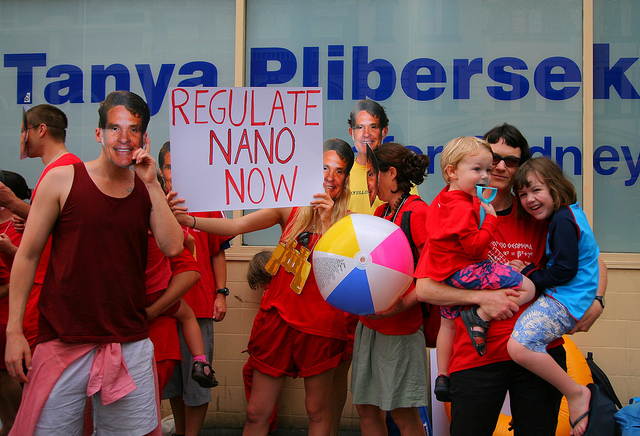Send to a friend
The details you provide on this page will not be used to send unsolicited email, and will not be sold to a 3rd party. See privacy policy.
[BRATISLAVA] The UN Educational, Scientific and Cultural Organization (UNESCO) has been urged to set up an expert group to seek a consensus of both developed and developing countries on how to tackle the ethical aspects of nanotechnology.
The proposal was made by speakers at a workshop in Bratislava, Slovakia, last week (27–29 May) organised by the Slovakian National Commission for UNESCO and the World Commission on the Ethics of Science and Technology (COMEST).
"All countries in the world will become involved in nanotechnology over the next ten or 20 years, and it is important to establish collaboration between North and South in developing an ethical roadmap on how the issues raised by this technology should be handled," said Ali Beitollahi, director of international relations for the Iran Nanotechnology Initiative Council (INIC).
The Bratislava meeting heard that the potential applications of nanotechnology — particularly in water treatment but also in fields such as health, agriculture and energy — could transform prospects for developing countries in ways similar to the wide-scale adoption of mobile phones.
"Nanoscience and nanotechnology are giving us new ways of thinking about development, and can play an important role in helping developing countries move towards sustainability," said COMEST member Abdoulaye Sene, an environmental sociologist at Senegal's Cheikh Anta Diop University.
But achieving this potential requires political and public support for nanotechnology, the meeting heard. And despite continuing uncertainty about the social and environmental impacts of nanotechnology, relatively little research had been done on what these were likely to be.
For example, Pedro Alvarez, a professor of engineering at Rice University in the United States, said that of the 300,000 papers published on nanotechnology in the past few years, less than 4,000 had focused on environmental health and safety.
He said that early reports had exaggerated the toxicity of acute exposure to nanotechnology, but little is known about the long-term effects of low-level exposure. "We need a more proactive approach to risk assessment; I do not think we are doing enough."
Saeed Sarkar, secretary-general of INIC, said developing countries should try to bridge the 'nano-divide' with developed countries, as Iran was now seeking to do. At the same time, however, it was important not to create any kind of 'nanophobia'.
"By promoting public knowledge of both the benefits and the risks, we will be better placed to take the initial steps in developing this technology. But we need consumer confidence that ethical issues have been taken into account."
Beitollahi told the meeting that Iran was already paying close attention to monitoring the potential risks of nanotechnology, for example, by setting up a nanoethics network across the country linking researchers and philosophers.
He also described how the country had introduced a voluntary system of 'nanomarks' by which manufacturers could indicate to the public products made with the use of nanotechnology.
Beitollahi added that countries around the world had already been drawing up global standards for nanotechnology products through the International Organisation for Standardisation.
The same approach could be used for ethics. "Even if we cannot yet define the red lines that should not be crossed, we need to make some preliminary steps," he said, adding that dialogue was needed between North and South to create an international framework for dealing with ethical issues. "UNESCO could be a good platform that could engage many actors."
John Crowley, of UNESCO's division of ethics and global change, said that, in principle, COMEST could set up a working group to review ethical issues but this would require additional external support, as it had suffered budget constraints following the withdrawal of the United States two years ago.


